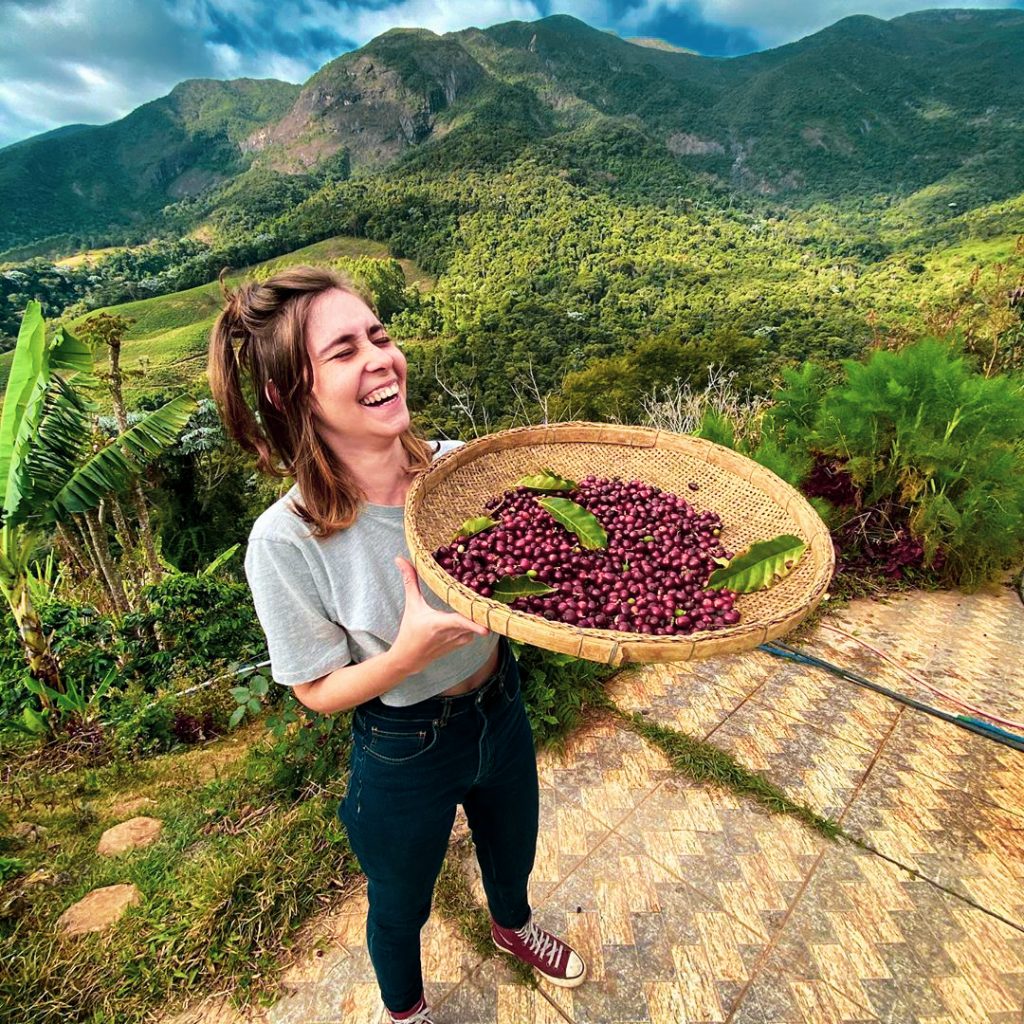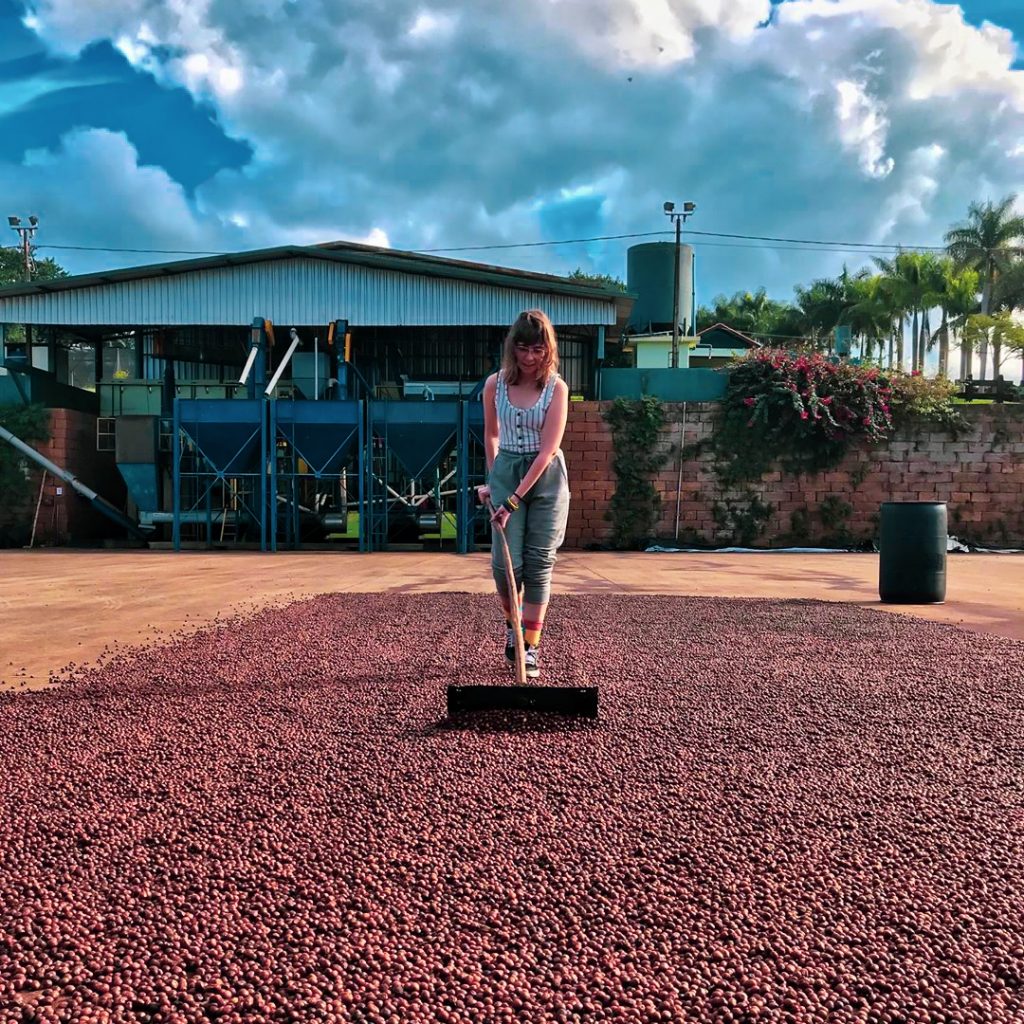Have you ever seen a cuter image? Probably not. But don’t be fooled by the bandaged smiley face; this woman is tough and has been exposed to some of the worst conditions imaginable in the coffee industry.
Priscila began her coffee journey as naive as the next person. She started her career in Brazil, her home country, where she was able to cultivate her skills and gain more knowledge about coffee. After receiving numerous accolades, Priscila decided it was time to move onto a different sector of the coffee industry, specifically coffee farms.

It was on these farms that Priscila discovered the huge underlying social and environmental issues surrounding coffee production. Priscila witnessed terrible harvesting conditions that deterred the potential of Brazilian farmers’ coffee. The farmers were clumsy and had never been taught proper harvesting techniques that would increase the value of their coffee.
“Many of them didn’t even know what they were doing,” Priscila lamented. She was shocked to find these farmers selling their coffee to large corporations who took advantage of their limited coffee knowledge in exchange for lower prices. Priscila explained that these corporations don’t consider the poor living conditions and grueling time commitment farmers are subjected to as a result of their meager pay.
“Their limited schooling on the product they’re producing allows this cycle to happen over and over again.”
Conditions were so unbearable, Priscila would overhear farmers advising their children,
“Go to school. Get an education. Don’t become a farmer like I have.”
Priscila noted that farmers weren’t the only ones being hurt in the coffee industry, but the environment as well. An absence of vegetation, overuse of pesticides, and lack of clean water produced horrible agricultural environments for the fruits to prosper. The strained living wages of the job limited the necessary funding to improve growing conditions, leaving them in a constant state of poverty.
No one was helping them until Priscila.
After watching her local farmers struggle to pay their bills, provide for their family, and make a decent living, Priscila took it upon herself to help them. During her visits to coffee farms, Priscila teaches farmers the correct harvesting methods of the coffee fruit as well as more sustainable methods that prevent negative environmental impacts. She understood their capacity to produce high-quality coffee that so many roasters sought after. Soon, Priscila became the conduit between professional roasters and Brazilian farmers, pushing for reform on their farms. She studied syntropic farming, organic agriculture, biogenetic production; anything that would educate these farmers on how to improve their working lifestyle.

Priscila is working with raw coffee beans
“So many people love coffee, but they never think about what goes into that one cup. If we continue with this, who knows where coffee will be five years from now, especially with factors like climate change. We need to educate people on what goes into their cup and show them how to help.”
Despite the challenges of the job, Priscila has discovered a passion for these people and has committed her life to empower the farmers. Her fervor has leaked into other agricultural sectors, pushing consumers and farmers to reevaluate their relationship with the land. Currently, Priscila is actively seeking an accord with coffee giant Nespresso to fund afforestation in Brazil to combat the slow disintegration of their forests. Although current conditions appear bleak, Priscila begs us to never lose sight of hope.
“We cannot let hope die. It’s so important to keep trying. This is our home. Our people. We cannot forget about the people.”
If you ever find yourself in Belo Horizonte, Brazil, reach out to Priscila! She is currently working as a BDM at Flor de Café.
Article By Marketing Intern Madeline and Jennie.

